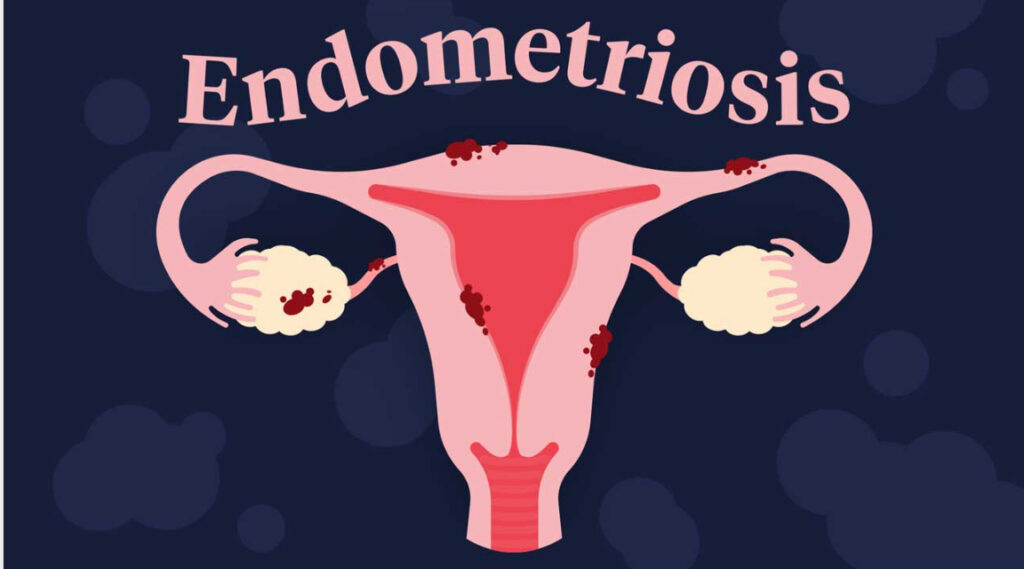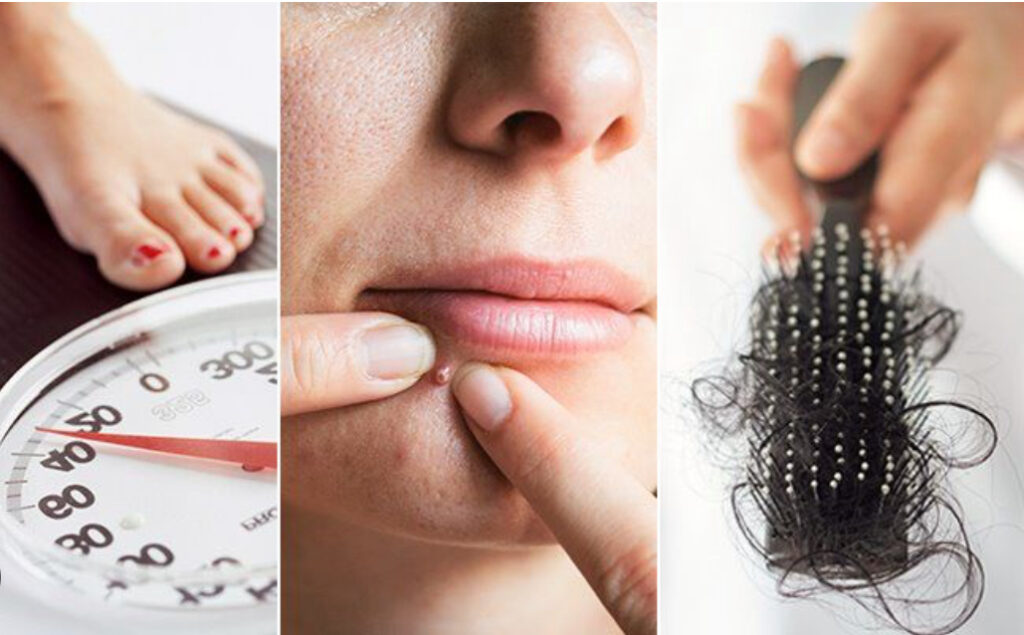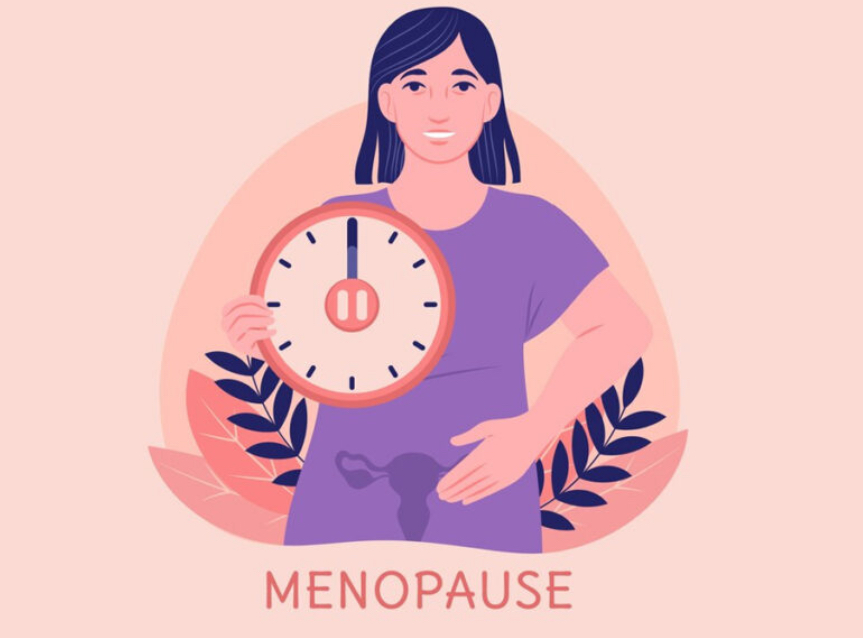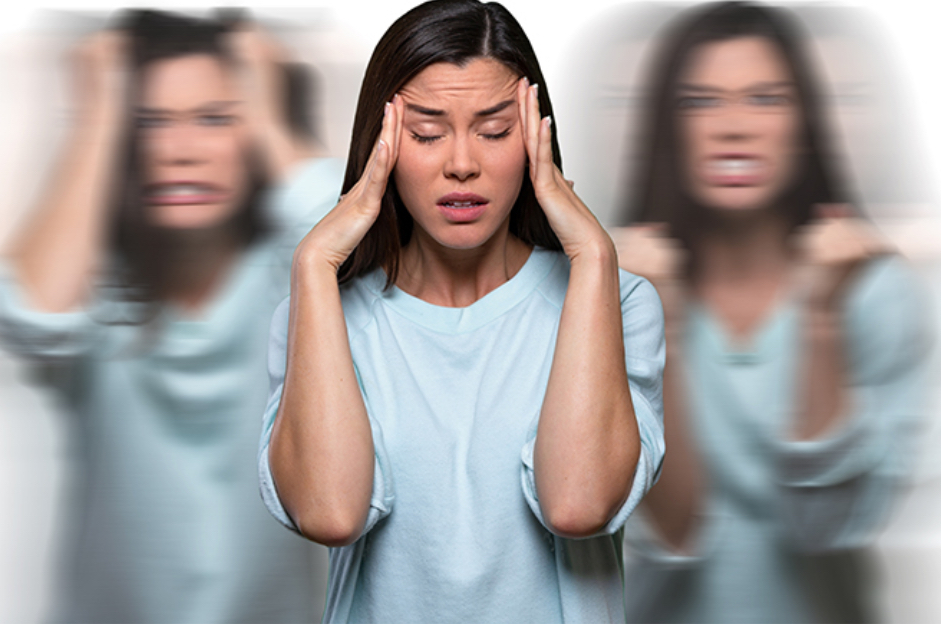Because your pain isn’t “normal,” your hormones aren’t “just moody,” and menopause shouldn’t feel like a second puberty with hot flashes.
May is Women’s Health Month, and while we love a good excuse to chat about girl dinners and starting a women’s run club, let’s go deeper—into the world of endometriosis, PCOS, menopause, and more hormones. Why? Because way too many women are walking around exhausted, bloated, and in pain, being told “it’s just part of being a woman.” Spoiler: it’s not.
Despite how common these issues are, too many women are left feeling confused, dismissed, or told to “just deal with it.” Whether you’re 22 and wondering why your cycle is a mess, or 52 and wondering why your entire body is suddenly a sauna—you deserve real answers and real support. Let’s break it all down and talk about holistic healing.
Endometriosis: What You Need to Know

Endometriosis (aka endo) is when tissue similar to your uterine lining grows where it doesn’t belong—like on your ovaries, fallopian tubes, bladder, or pelvic walls. This creates inflammation, pain, and often, scar tissue. And we’re not talking “mild cramps”—we’re talking can’t-get-out-of-bed, cancel-your-plans, ice-pack-and-heating-pad combo level pain.
Common symptoms include:
- Painful periods (not the kind Midol fixes)
- Pelvic pain all month long
- Fatigue and brain fog
- Fertility struggles
Why it’s often missed:
Because pelvic pain is frequently dismissed as “normal,” and endo doesn’t always show up clearly on imaging. Many women go years—yes, YEARS—before receiving an accurate diagnosis.
Holistic healing options:
- Anti-inflammatory diets and supplements
- Pelvic floor physical therapy (more on that in a sec)
- Stress reduction to calm the nervous system’s role in pain
PCOS: More Than Just Irregular Periods

Polycystic Ovary Syndrome (PCOS) is a hormonal condition that affects ovulation and metabolism. And despite its name, you don’t need cysts on your ovaries to have it (thanks for the confusion, science).
Symptoms may include:
- Irregular or missing periods
- Weight gain that feels impossible to lose
- Acne, hair thinning, or excess facial hair
- Blood sugar instability
- Mood swings or anxiety
Holistic Health Management may include:
- Blood sugar-balancing nutrition
- Supplements like inositol, magnesium, or vitamin D
- Hormone-supportive movement
- Pelvic floor PT to reduce pain and improve core function
While there’s no “cure,” PCOS can be dramatically helped through a mix of lifestyle, nutrition, targeted supplements, and yes—pelvic floor physical therapy.
Menopause: It’s Not Just Hot Flashes

Let’s hear it for the third hormone rollercoaster in a woman’s life—menopause. Perimenopause (the transition years) can start in your 40s or earlier and brings a whole new set of hormonal plot twists.
Common symptoms include:
- Hot flashes and night sweats
- Vaginal dryness and discomfort with intimacy
- Sleep disturbances
- Mood swings or anxiety
- Brain fog (aka “where did I put my phone… again?”)
Here’s the catch:
Estrogen and progesterone decline, affecting not just your period—but your pelvic floor, metabolism, skin, brain, and emotional health.
Thriving Through Menopause—Through a Holistic Health Approach
Here’s the truth: menopause doesn’t have to mean suffering through a hormonal freefall. With a holistic health/functional medicine approach, we look at why your symptoms are flaring—not just how to suppress them.
We use:
- Comprehensive hormone testing to see where your estrogen, progesterone, testosterone, cortisol, and DHEA levels stand.
- Targeted lifestyle changes that support adrenal health and detox pathways (because poor detox = hormonal chaos)
- Individualized nutrition to balance blood sugar, reduce inflammation, and support estrogen metabolism
- Adaptogens and herbs like ashwagandha, maca, and rhodiola to help your body adapt to stress
- Sleep optimization and nervous system support to calm the cortisol spikes that worsen hot flashes and mood swings
The goal? Not to “cope”—but to step into this next season feeling strong, supported, and symptom-free.
How Pelvic Floor & Hormonal Health Are Connected
Here’s what most doctors don’t tell you: your hormones, stress, nervous system, and pelvic floor are all in constant conversation. When stress is high or hormones are out of whack, your pelvic muscles respond.
The result?
- Painful sex
- Pelvic pressure or leaking
- Bloating and abdominal discomfort
- Mood shifts and poor sleep
What helps:
- Blood sugar balance (protein + fiber = hormone-friendly meals)
- Movement (not just HIIT—think walking, yoga, and pelvic floor exercises)
- Nervous system regulation (deep breathing, down time, and sleep)
- Supportive therapy and a functional medicine approach to hormone health
In addition, whether you’re dealing with endo, PCOS, or menopause, your pelvic floor often takes the hit. Chronic pain and inflammation can cause the muscles to become tense or guarded. Hormonal changes during menopause can lead to muscle thinning and dysfunction.
Our pelvic floor therapists can help clients:
- Release tight, painful pelvic muscles
- Improve blood flow and break up scar tissue
- Restore strength and function
- Make intimacy comfortable again (yes, really!)
Read more about our pelvic floor physical therapy services HERE.
Our Whole-Woman, Holistic Health Approach
If you’ve ever been told “it’s just hormonal,” consider this your permission slip to question that advice and seek better answers. Your cramps aren’t imaginary. Your weight gain isn’t just about willpower. Your hot flashes aren’t a life sentence.
Whether it’s PCOS, endo, or menopause, there are real strategies—and real people—who can help.
At Mitchell Holistic Health here in Onalaska and La Crosse areas, we believe in treating the whole woman, not just the lab results. From functional medicine to pelvic floor therapy, we’re here to help you understand your body, support your hormones, and finally feel like you’re actually making progress.
Let’s work together. Book your pelvic floor therapy or functional medicine consult today.
If you aren’t quite fully committed to scheduling an appointment yet, check out our Instagram and Facebook pages where you can see more information about our services, our approach, and how we can help you!
FAQs We Know You’ve Wondered
1. I have hair where I don’t want it… and none where I do. Is that PCOS?
It could be. Excess facial or body hair and thinning scalp hair are both signs of elevated androgens (common in PCOS). Functional medicine can help balance hormones naturally while addressing the root cause.
2. Why do I feel so bloated and uncomfortable all the time—especially around my cycle?
Bloating can be linked to hormone fluctuations, inflammation from endometriosis, or even pelvic floor tension that restricts normal digestive flow. You’re not being dramatic—it’s a real, fixable issue.
3. My periods are unpredictable—and sometimes MIA. Should I be worried?
Irregular or missing periods can signal hormonal imbalances like PCOS or perimenopause. Your cycle is a vital sign, and we take it seriously.
4. Can stress really mess up my hormones that much?
Yes. Chronic stress elevates cortisol, which can suppress ovulation, throw off your cycle, worsen PMS, and increase inflammation—all of which play into PCOS, endo, and menopause symptoms.
5. I’m in perimenopause and feel like I’m losing my mind. Is this normal?
Brain fog, mood swings, and insomnia during perimenopause are real—and often linked to dropping progesterone and estrogen. You’re not going crazy. You’re in transition—and there’s support for that.
6. Is it TMI to bring up painful pooping or tampon insertion with my provider?
Not at all. These are often signs of pelvic floor dysfunction or endometriosis-related scar tissue. If it’s happening, it’s worth mentioning—we’ve heard it all, and we’re here to help.
7. Can pelvic floor therapy really help with hormone-related issues?
Absolutely. Your pelvic floor is part of your core hormonal feedback loop. Tension, weakness, or trauma in that area can affect everything from digestion to sexual health to stress regulation.
8. I’ve been told to “just lose weight” for my PCOS. That’s it?
Hard no. PCOS is about far more than weight—it involves insulin resistance, inflammation, adrenal imbalances, and hormone dysfunction. You need a whole-person approach, not a dismissive lecture.

